May 20, 2020 •
Senate Confirms Commissioner to FEC, Restoring Quorum
On May 19, the U.S. Senate confirmed President Trump’s nominee to the Federal Election Commission (FEC), restoring a quorum for the agency. With the confirmation of James “Trey” Trainor, the FEC now has four commissioners, which meets the minimum […]
On May 19, the U.S. Senate confirmed President Trump’s nominee to the Federal Election Commission (FEC), restoring a quorum for the agency.
With the confirmation of James “Trey” Trainor, the FEC now has four commissioners, which meets the minimum threshold of commissioners required for any official action.
The Commission has two registered members of the Republican Party, one registered member of the Democratic Party, and one Independent.
Trainor is a lawyer licensed in Texas who specializes in election law, campaign finance, and ethics.
Trainor previously served in the president’s administration as a Special Assistant to the Secretary of Defense, James Mattis, in the Department of Defense, Office of General Counsel.
Trump had originally nominated Trainor to serve as a commissioner in 2017, but a hearing in the Senate was never held.
Two seats on the FEC still remains vacant.
November 7, 2018 •
Mike Braun Unseats U.S. Sen. Joe Donnelly in Indiana
Incumbent Democrat Sen. Joe Donnelly has lost his senate seat after an aggressive election contest brought by Indiana State Rep. Mike Braun. Braun, a Republican state politician and businessman, unseated Donnelly in a state heavily supportive of President Trump. As […]
 Incumbent Democrat Sen. Joe Donnelly has lost his senate seat after an aggressive election contest brought by Indiana State Rep. Mike Braun.
Incumbent Democrat Sen. Joe Donnelly has lost his senate seat after an aggressive election contest brought by Indiana State Rep. Mike Braun.
Braun, a Republican state politician and businessman, unseated Donnelly in a state heavily supportive of President Trump.
As part of an effort to keep Republican control of the U.S. Senate, the president held four political rallies in Indiana in support of Braun.
Trump appeared in Indiana in May, two days after Braun won the Republican primary, in August, on Friday, November 2, and again on Monday in Fort Wayne, a day before yesterday’s election.
Braun’s election victory yesterday in Indiana helped the Republicans keep control of the U.S. Senate.
November 7, 2018 •
Ted Cruz Fends Off Beto O’Rourke and Keeps Senate Seat
Incumbent Republican U.S. Sen. Ted Cruz has kept his senate seat after a fierce election contest brought by U.S. Rep. Beto O’Rourke. O’Rourke, a three-term Democratic Congressman from El Paso, Texas, garnered national attention for creating a competitive race against […]
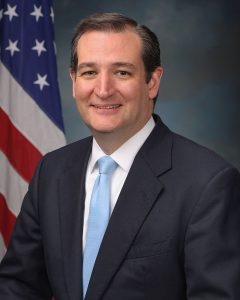 Incumbent Republican U.S. Sen. Ted Cruz has kept his senate seat after a fierce election contest brought by U.S. Rep. Beto O’Rourke.
Incumbent Republican U.S. Sen. Ted Cruz has kept his senate seat after a fierce election contest brought by U.S. Rep. Beto O’Rourke.
O’Rourke, a three-term Democratic Congressman from El Paso, Texas, garnered national attention for creating a competitive race against Cruz, who had been assumed to have a seat safe from any real election challenge.
The challenge by O’Rourke motivated president Trump, a sometimes-critic of Cruz, to hold a political rally for the Republican senate candidate in October in Houston.
Cruz’s election victory yesterday in Texas helped the Republicans keep control of the U.S. Senate.
November 7, 2018 •
Democrats Take House While Republicans Keep Senate
On November 6, voters gave Democrats the majority control of the U.S. House of Representatives while keeping Republicans firmly in control of the Senate. With early elections results in, it appears clear Democrats have gained at least 26 seats, giving […]
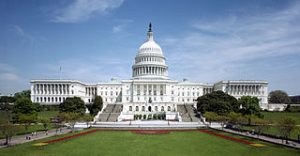 On November 6, voters gave Democrats the majority control of the U.S. House of Representatives while keeping Republicans firmly in control of the Senate.
On November 6, voters gave Democrats the majority control of the U.S. House of Representatives while keeping Republicans firmly in control of the Senate.
With early elections results in, it appears clear Democrats have gained at least 26 seats, giving them more than the 218 seats required in the House for a majority.
In the Senate, Republicans gained two seats, ensuring their control of the Senate.
Republicans may possibly increase their majority in the Senate when the final votes are counted.
September 27, 2018 •
US Senate Joint Resolution Seeks to Reverse IRS Disclosure Exemption for Certain Tax-Exempt Organizations
On September 24, U.S. Senators Jon Tester and Ron Wyden introduced a resolution to reverse a U.S. Treasury Department’s decision limiting IRS disclosure requirements of certain tax-exempt organizations engaging in political activities. On July 16, the U.S. Treasury Department and […]
 On September 24, U.S. Senators Jon Tester and Ron Wyden introduced a resolution to reverse a U.S. Treasury Department’s decision limiting IRS disclosure requirements of certain tax-exempt organizations engaging in political activities.
On September 24, U.S. Senators Jon Tester and Ron Wyden introduced a resolution to reverse a U.S. Treasury Department’s decision limiting IRS disclosure requirements of certain tax-exempt organizations engaging in political activities.
On July 16, the U.S. Treasury Department and the IRS announced certain tax-exempt organizations are no longer required to report the names and addresses of contributors on their annual reports.
This exemption from reporting applies to tax-exempt organizations generally not receiving tax-deductible contributions, such as the National Rifle Association, labor unions, volunteer fire departments, issue-advocacy groups, local chambers of commerce, veterans’ groups, and community service clubs. These organizations are still required to continue to collect and keep the donor information and to make it available to the IRS upon its request.
This exemption does not affect the information required to be reported by charities primarily receiving tax-deductible contributions, such as 501(c)(3) organizations, certain nonexempt private foundations, or 527 political organizations.
Senate Joint Resolution 64, The Spotlight Act, would overturn the exemption and require disclosure to the IRS of the names and information of donors who contribute more than $5,000.
September 18, 2018 •
Sen. Sasse Introduces Five Federal Ethics Bills
On September 17, Sen. Ben Sasse introduced five federal ethics bills in the Senate, including Senate Bill 3454, the Congressional Revolving Door Ban Act, which would create a lifetime ban on members of Congress leaving office to become federal lobbyists. […]
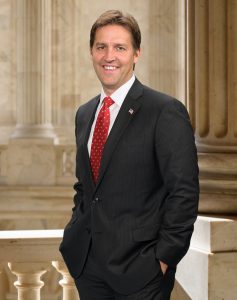 On September 17, Sen. Ben Sasse introduced five federal ethics bills in the Senate, including Senate Bill 3454, the Congressional Revolving Door Ban Act, which would create a lifetime ban on members of Congress leaving office to become federal lobbyists.
On September 17, Sen. Ben Sasse introduced five federal ethics bills in the Senate, including Senate Bill 3454, the Congressional Revolving Door Ban Act, which would create a lifetime ban on members of Congress leaving office to become federal lobbyists.
Senate Bill 3452, the Cabinet Service Integrity Act, prohibits cabinet members and their immediate family from soliciting contributions from a government of a foreign country, a foreign political party, or any entity owned or controlled by a government of a foreign country or foreign political party.
Senate Bill 3451, the Congressional Anti-Corruption Act, prohibits members of Congress from buying or selling individual securities while in office.
Senate Bill 3453, the Congressional Workplace Misconduct Accountability Act, creates a public database of U.S. Congressional human resources settlements and increases the personal financial liability for members of congress.
Senate Bill 3450, the Presidential Tax Transparency Act, requires a presidential and vice-presidential candidates’ tax returns be disclosed by the Internal Revenue Service.
Sasse said he intends the legislation to be “big and disruptive and uncomfortable for Washington, D.C.”, according to his press release.
September 4, 2018 •
Arizona Governor Names McCain Replacement
Gov. Doug Ducey has named Sen. Jon Kyl to fill the late Sen. John McCain’s seat in the Senate. Sen. Kyl represented Arizona in the Senate for close to 20 years before reaching retirement in 2013. Kyl has committed to […]
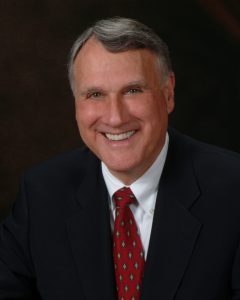 Gov. Doug Ducey has named Sen. Jon Kyl to fill the late Sen. John McCain’s seat in the Senate.
Gov. Doug Ducey has named Sen. Jon Kyl to fill the late Sen. John McCain’s seat in the Senate.
Sen. Kyl represented Arizona in the Senate for close to 20 years before reaching retirement in 2013. Kyl has committed to serving until the end of 2018, and possibly until a 2020 special election to fill the seat more permanently.
Gov. Ducey’s office reportedly considered several replacements since Sen. McCain’s diagnosis 13 months ago, including his wife Cindy McCain.
Gov. Ducey is the first governor in Arizona’s 106-year history to fill a U.S. Senate seat by appointment.
December 11, 2017 •
Al Franken’s Senate Seat Up for Grabs in November 2018 Special Election
U.S. Sen. Al Franken announced he would step down amid sexual harassment allegations on December 7, 2018. Franken’s resignation allows Gov. Mark Dayton to make a temporary appointment to fill the vacancy until the special election is held. Dayton has […]
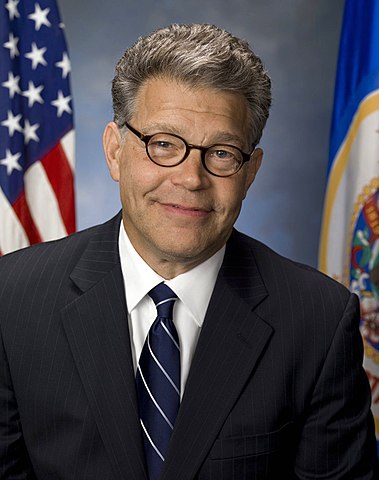 U.S. Sen. Al Franken announced he would step down amid sexual harassment allegations on December 7, 2018.
U.S. Sen. Al Franken announced he would step down amid sexual harassment allegations on December 7, 2018.
Franken’s resignation allows Gov. Mark Dayton to make a temporary appointment to fill the vacancy until the special election is held.
Dayton has yet to announce an appointment for Franken’s seat.
The special election will be held on November 6, 2018, and the special primary election will be held on August 14, 2018.
May 2, 2017 •
Procurement Fraud Prevent Act Introduced in U.S. Senate
On April 25, U.S. Senators Susan Collins and Gary Peters introduced legislation designed to help small businesses registering to procure federal contracts. Senate Bill 938, the Procurement Fraud Prevent Act, would require small businesses, when registering to contract with the […]
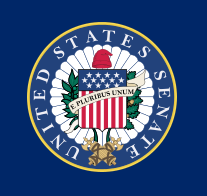 On April 25, U.S. Senators Susan Collins and Gary Peters introduced legislation designed to help small businesses registering to procure federal contracts.
On April 25, U.S. Senators Susan Collins and Gary Peters introduced legislation designed to help small businesses registering to procure federal contracts.
Senate Bill 938, the Procurement Fraud Prevent Act, would require small businesses, when registering to contract with the federal government, to be notified of free federal program assistance when procuring federal contracts. These federal programs include the Procurement Technical Assistance Centers, the Small Business Administration, and the Minority Business Development Agency.
“Our legislation would ensure that more small businesses are aware of the free tools and resources already available to them so they can focus on making competitive bids, growing their companies, and creating jobs in their communities,” said Collins in a press release.
April 19, 2017 •
New Alabama Governor Moves U.S. Senate Special Election
Gov. Kay Ivey moved the U.S. Senate seat special election from November 6, 2018, to December 12, 2017. The special election is needed to fill the U.S. Senate seat formerly held by U.S. Attorney Gen. Jeff Sessions. Former Gov. Robert […]
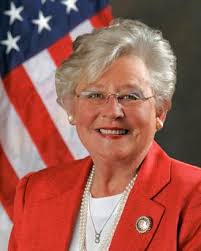 Gov. Kay Ivey moved the U.S. Senate seat special election from November 6, 2018, to December 12, 2017. The special election is needed to fill the U.S. Senate seat formerly held by U.S. Attorney Gen. Jeff Sessions.
Gov. Kay Ivey moved the U.S. Senate seat special election from November 6, 2018, to December 12, 2017. The special election is needed to fill the U.S. Senate seat formerly held by U.S. Attorney Gen. Jeff Sessions.
Former Gov. Robert Bentley appointed Luther Strange to fill the vacancy and scheduled the election for 2018, allowing Strange to serve as an incumbent for 22 months.
Ivey changed the date of the election to better follow Alabama law, which clearly states a special election may only be delayed until the next regular election if the senate vacancy occurred within four months of the next regular election.
The special primary will now be held on August 15, 2017, with a special runoff on September 26, 2017. The special general is scheduled for December 12, 2017.
State and Federal Communications, Inc. provides research and consulting services for government relations professionals on lobbying laws, procurement lobbying laws, political contribution laws in the United States and Canada. Learn more by visiting stateandfed.com.

